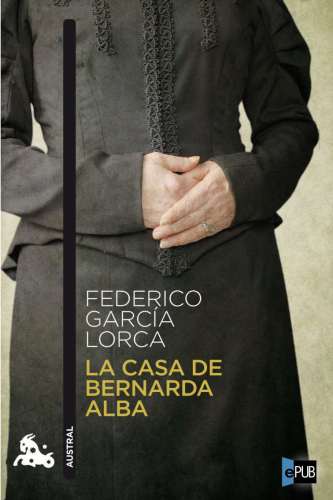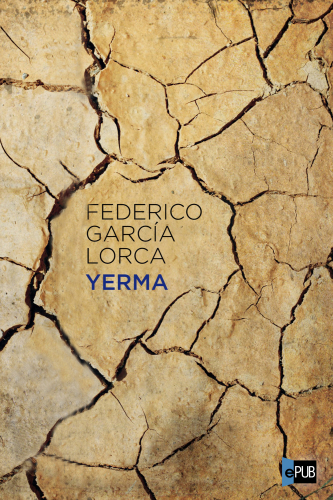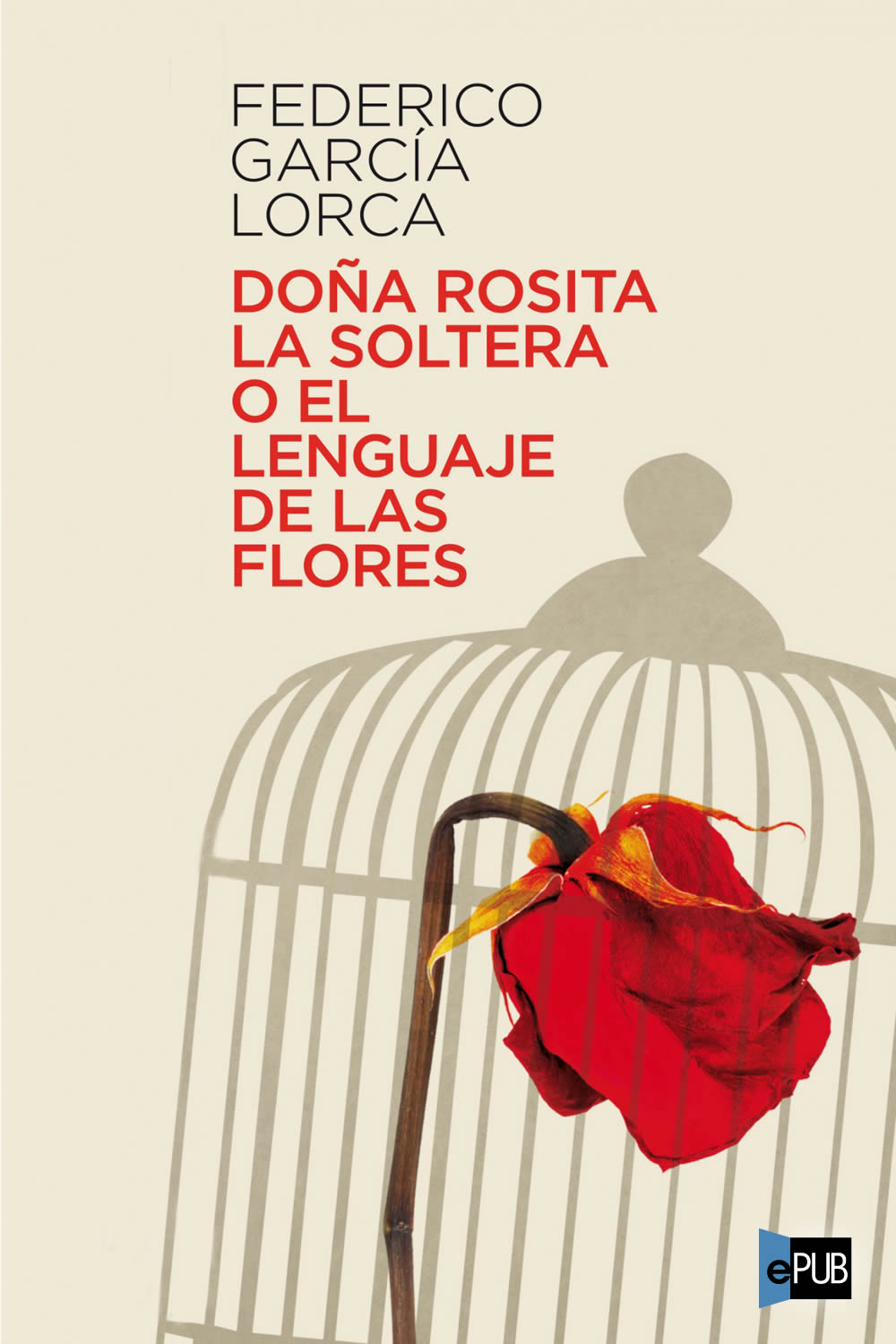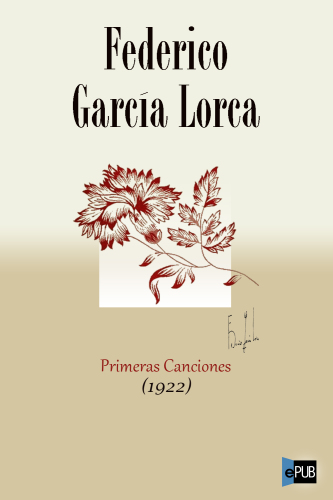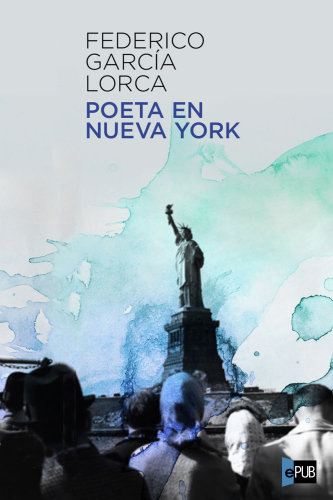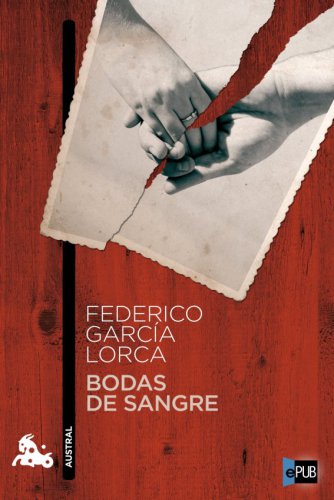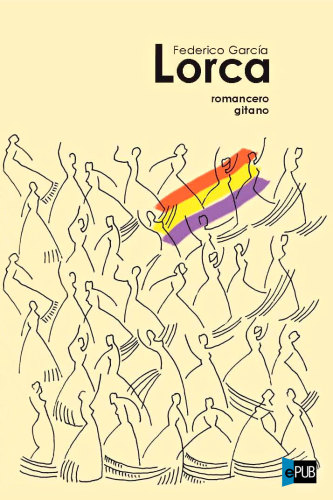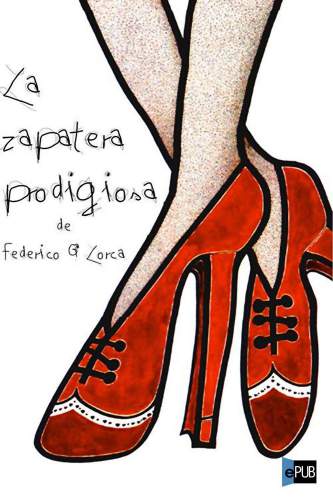oleebook.com
Poema del cante jondo de Lorca, Federico García
de Lorca, Federico García - Género: Ficcion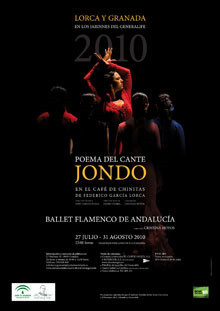
Sinopsis
El nombre de Federico García Lorca está ligado, junto con el de Manuel de Falla, a la renovación moderna del «cante jondo». Ellos conectaron ese «canto primitivo» con las exigencias de pureza de la vanguardia internacional. El primer fruto de esta colaboración fue el Primer Concurso de Cante Jondo, celebrado en Granada en 1922; el segundo, el POEMA DEL CANTE JONDO, interpretación lírica de un mundo agónico y secreto.
Libros Recomendados - Relacionados
Reseñas Varias sobre este libro
I am not a strong fan of poetry. It is not a genre that I turn to with preference. I have a few poets whom I have read off and on. I do not, as a rule, venture beyond a handful that I encountered among the well known and even then, they lie fallow for years, remembered only in brief reflection and not in a re-reading.
García Lorca is the exception.
And about Lorcas workshis poetry and his theatreI am enthusiastic.
This is not my first reading of Poema del cante jondo. My first exposure to it was in the late 1960s in Madrid where I audited a course on García Lorcas poetry and theatre taught by Damaso Alonso. Professor Alonso had known Lorca as a friend and colleague starting in their youth when both were students at the progressive Residencia de Estudiantes in Madrid. Both, also, were part of the group known as the Generation of 27a number of poets linked by their explorations with the avant-garde. It was from Professor Alonso, himself a poet, that I gained a deeper understanding of Lorca and of Lorcas works.
In its most fundamental perspective, Lorcas poetry deals with the universal themes of love, death and alienation. Those themes are what call me back into Lorcas poetry every so often. And beyond that, the poetry is rooted perfectly in the soul of Andalucía. Reading the Poema del cante jondo in Castilian is a remarkable journey through the unique colors, smells and senses of that soul.
DE PROFUNDIS
Los cien enamorados
duermen para siempre
bajo la tierra seca.
Andalucia tiene
largos caminos rojos.
Cordoba, olivos verdes
donde poner cien cruces,
que los recuredan.
Los cien enamorados
duermen para siempre.poetry9 s Edita1,502 511
The field
of olive trees
opens and closes
a fan.
Above the olive grove
there is a sunken sky
and a dark shower
of cold stars.
Bulrush and twilight tremble
at the edge of the river.
The grey air ripples.
The olive trees
are charged
with cries.
A flock
of captive birds,
shaking their very long
tail feathers in the gloom.
*
Everything in the world is broken
Nothing but silence remains.
*
A dark and clear sky,
a toasted earth,
and riverbeds where water
runs ever so slowly.
*
The guitar
makes dreams weep.federico-garcia-lorca poetry5 s Dan321 25
I read this in a big dual language edition of the Collected Poems. I'm trying to teach myself to read Spanish.2023 2023-owned-but-previously-unread3 s Álex225 45
Sigo sin saber qué decir ante un libro de poesía, pero por intentarlo... Me ha cautivado la musicalidad y, aunque me esperaba más metáforas al respecto, he sentido una parte de esa Andalucía mitológica, la telúrica y pagana, la del viento, la sangre y el perfume.andalucía poesía3 s F?rid Babayev65 1 followerRead
"Ne sen, ne ben
haz?r de?iliz
kar??la?maya.
Biliyorsun nedenini"2 s Dwhale270 4
Çok güzel...
Lorca'dan bir bilmece! Cevab? ve daha da fazlas? kitapta...
Alt? k?z
dans ediyor
yuvarlak
yol kav?a??nda.
Üçü etten
üçü gümü?.
Dünkü dü?ler onlar? ar?yor,
ama alt?n bir Polifemo (*),
kuca??nda tutuyor onlar?.
(*) Deniz Tanr?s? Poseidon'un o?lu imi?.
____________
sayfa 91
(...)
YARBAY: Neredeydin?
Ç?NGENE: Irmaklar?n köprüsünde.
YARBAY: Peki hangi ?rmaklar?n?
Ç?NGENE: Bütün ?rmaklar?n.
YARBAY: Ne yap?yordun orada?
Ç?NGENE: Tarç?ndan bir kule.
YARBAY: Çavu?!
ÇAVU?: Emrinizdeyim Sivil Muhafaza Yarbay?m!
Ç?NGENE: Uçmak için kanatlar icat ettim ve uçuyorum. Dudaklar?mda kükürt ve gül.
YARBAY: Ya!
Ç?NGENE: Asl?nda uçmak için kanada da ihtiyac?m yok. Kan?mda bulutlar ve yüzükler.
YARBAY: Ya!
Ç?NGENE: Ocak ay?nda portakal çiçe?im var.
YARBAY (Sinirle kas?l?r): Ya!
Ç?NGENE: Kar alt?nda da portakallar?m.
YARBAY: Ya! Pami bum, bom. (Dü?üp ölür.)
(Guardia sivil yarbay?n?n sütlü kahveden ve tütünden olma ruhu pencereden ç?k?p gider.)
ÇAVU?: ?mdat!
(K??lan?n avlusunda dört muhaf?z çingeneyi döver.)
2 s Gemma318 42
Lámparas de cristal
y espejos verdes.
Sobre el tablado oscuro,
la Parrala sostiene
una conversación
con la muerte.
La llama,
no viene,
y la vuelve a llamar.
Las gentes
aspiran los sollozos.
Y en los espejos verdes,
largas colas de seda
se mueven.
Y no digo mas <3 classics poetry2 s Daniel Morgan675 19
A masterpiece that everyone on earth should read. Note: the English version is very good, so even if you do not read Spanish, you can still enjoy the poems in this book. I also appreciated that the translation was done in facing pages, so that you could switch between language if you wish.español2 s Meg228 4
A certain day of the week bought this for me; a lovely gesture.ownsmysoul2 s Mac Green4
Powerful poems that you almost feel you could sink your teeth into. Simple enough for a beginning Spanish Language learner to appreciate, with a whole lot of depth, nevertheless.2 s Pablo101 3
So deep. Andalusian essence of Lorca in all his nature. Easy to read. 2 s Ben846 48
My journey with Federico García Lorca has been a slow and laborious one, reading his collected poems chronologically, translating each one from Spanish to English and then comparing my translation with the text I have with side-by-side Spanish and English text. I'm assured that the reward with García Lorca really comes with Poet in New York.
The earlier works Poem of the Deep Song are filled with beautiful imagery and a great deal of repetition. Both Poem of the Deep Song and the earlier work,Book of Poems, are filled with olive groves, orange blossoms, weeping guitars, frogs and crickets whose cries pierce the silence of night, men on horseback, dry lands and windy nights. There is no doubt that much of the imagery is beautiful, but with poetry so much is about how the poems stir something within the reader. And I'm not sure at this point in my journey with García Lorca that I feel that much better for having read him (contrasting this with how I felt after reading certain Beat Poets, French symbolists, or the works of Walt Whitman). Part of this may be that his poems, while also sometimes universal, are deeply rooted in a specific place in time, the Spain of the 1920s and 30s, and I cannot relate to the specific.
For me, the highlights were the longer pieces at the end, written as dialogues, "Escena del teniente coronel de la Guardia Civil" and "Diálogo del Amargo". Perhaps is what is most striking about them is the universality, works undoubtedly about Spain, but also about violence, death, free-thinking. In the first work we are positioned, the poet, to align with the free-spirited gypsy boy over the rigid and calculated Lieutenant Colonel of the Civil Guard. In the second, we are less well-positioned to identify with any one over the other, but we know that in this story of Amargo, death is lurking in every line. The latter in some ways reminded me of Samuel Beckett's Waiting for Godot. It's a short work bursting with musings about life, death and the meaning of the two, but there are, as is the case in life itself, no real answers.
While I plan to continue my journey with García Lorca, going next to his much longer work Suites, which I'm assured marks a change in his style from the early works, I'm hoping that something sparks, that I find not just some pretty passages, but magic in the words and imagery.1 Svante45
Den andalusiska sången på svenska. Cante jondon på spanska. En "Cante jondon" ska sjungas fram, inte med vacker röst utan brusten, för att påminna andaluserna om hur både smärtan och musiken är del av deras själar. Min sambo tyckte inte det var vackert när jag sjöng, hon menar också att jag varken har smärta eller musik i min själ och att jag därför sysslar med kulturell appropriering när jag försöker.1 Dustincecil409 14
very high 3...
a lot of these felt sort of unresolved, or more sketches. which i still love, but just bit thin on the meat.
1 Ana Fontes8
Éxtasis. ?1 1 comment Susi Guardia112 21
4,5/5??lecturas-20231 Henry18 3
He loves oil lamps, thats for sure1 herondale ??146 20
[English]
[En español al final]
Lorcas poetry has some of the most moving verses Ive ever read. The way he plays with language, how every line is arranged into an almost song- stanza form and the multiple references to elements of Andalusian culture make this anthology a highly enjoyable read. I especially encourage reading Lorca and Manuel de Fallas speeches on the origins and influence of the cante jondo genre. Both essays are quite insightful de Fallas might be a bit too technical at times, perhaps, but its still an interesting one.
.
Pocos me tocan el alma como Lorca, y a pocos, también, los siento de una forma tan personal y directa. Indispensable para toda persona con raíces andaluzas, pasión por la poesía y gusto por la música.
No sé si es cosa de mi edición o si aparecerá en todas, pero mi Poema del cante jondo incluía un discurso del propio Lorca y otro de Manuel de Falla a modo de epílogo. Recomiendo muchísimo leer ambos textos para alcanzar un mayor entendimiento de las raíces orientales de la poesía popular andaluza y para ver su influencia en la música y la lírica de otras culturas. Interesantísima la sección sobre música rusa en el discurso de Manuel de Falla, que es bastante más detallado que el de Lorca y profundiza más en los aspectos musicales del cante jondo (a veces, con demasiados tecnicismos para mi gusto, pero no resulta difícil de entender a gran escala incluso si se carece de formación musical).poetry1 Sean A.255 18
elegiac and mysterious, this is apparently the first published book of lorca's verse. it is centered around paying active homage to the gypsy peoples of andulusia. but lorca takes this premise and uses it for his own ends. i've read almost all of lorca's writing at some point, but very little of the folks he references which makes me wonder, am i a lazy reader? am i relying too much on lorca's perspective? nonetheless, what a perspective it is! filled with olive trees and daggers, these terse and compact poems distill a lot into a (usually) pointed half-page or less. they definitely have the air of intrigue, but also an airy gorgeous element which is both natural and creepy. i especially d the play excerpt tidbits and adjoining poems at the end of the book and it makes me eager to re-read his other plays which i don't remember much of anymore.
poetry1 Paul245 15
This version has the original Spanish pooems alongside their English translations. I had difficulties understanding some of the poems, maybe it would have helped to have lived in Spain in the 1920s. Many of the poems seemed to deal with death, loneliness and the sublime. Some of the poems were very sad, others were somewhat diquieting. Although the poems were written in a brief and simple style, It took me a while to get through them. This was a very moving collection of poems and I suspect I'll have to read it again to get it's full impact.1 Jerry Landry438 13
This collection of poems dealt with traditional lyric forms with twists added by Lorca. The reader is treated to beautiful images and descriptions of the life and scenery of Andalusia. I highly recommend this book and in particular this edition as it has the poems in Spanish and English side by side. I found myself reading the Spanish aloud to get a sense of the rhythms and tones that Lorca intended, though the English translation tried to retain that as closely as possible.2012-reads books-owned1 David Magnus27 12
Otro cancionero hondo brillante del maestro García Lorca. En virtud de dicha melodía, magnificar: Seis caprichos - Adivinanza de la guitarra (capricho número uno): 'En la redonda / encrucijada / seis doncellas / bailan. / Tres de carne / y tres de plata. / Los sueños de ayer las buscan / pero las tiene abrazadas, / un Polifemo de oro. / ¡La guitarra!'europeo poesía1 Chanti154
Lyrical, passionate, dark, beautiful, lush. Garcia Lorca weaves some incredible poetry here (and he was only 23 when he completed Poema del Cante Jondo!). It's dreary and half-hidden, sometimes deeply melancholy. Not a light read by any means. But the language is gorgeous and I found it fascinating.poetry1 Mehmet K?r388 14
Bu kitapta özellikle "Iss?zl?k" ve "Sevilla" adl? ?iirleri dikkatimi çekti. Güzel m?sralara ev sahipli?i yap?yor.
"Dinle, çocu?um ?ss?zl???.
Dalgalanan ?ss?zl???,
vadilerin kayd??? ?ss?zl???,
yank?lar?n oldu?u ?ss?zl???,
al?nlan topra?a e?ilten ?ss?zl???."
"Usta okçularla,
dolu bir kuledir Sevilya.
Sevilya yaralamak için.
Kurtuba ölmek için."2017-20181 Gamal elneel524 66
???? ?????? ????????
???? ????? :
????? ????? ????? ??????
???? ????? ????? ??????
????? ?????? ?????? ?????
?? ????? ????? ????? ????? ???
???? ?? ???? ????? ?? ???? ???
??? ?????? ????????
?????? ????? ??????
???? ????? ????? ??????
????? ???? ???? ??????1 Ahmed Ibrahim1,198 1,714
??????? ??? ????? ????? ??? ??? ?? ?????? ?? ?????? ?? ??????? ???????..
????????? ????? ????? ??????.
??????? ?? ????? ??? ??????
??? ??? ??????? ?
??? ????? ????
??????? ????????
????? ??????? ??? ???????
??? ?????.2016 ??? ????? ...more5 s JamesAuthor 14 books1,187
La elipse de un grito
va de monte
a monte.
Desde los olivos,
será un arco iris negro
sobre la noche azul.
¡Ay!
Como un arco de viola,
el grito ha hecho vibrar
largas cuerdas del viento.
¡Ay!
(Las gentes de las cuevas
asoman sus velones.)
¡Ay!
rituals-and-witchcraft sparrows-feeding-their-young1 Kassy33
stunning.1 Becky24 2
"Los cien enamorados duermen para siempre..."
Ah, so sad and beautiful.1 Ed Smith85 1 follower
Autor del comentario:
=================================
